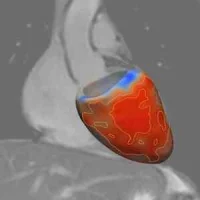According to an article published in JAMA Internal Medicine, beta-blockers are associated with increased risk for major adverse cardiovascular events (MACE) and death in patients who underwent non-cardiac surgery.
The study was conducted by Mads E. Jørgensen, MB, of Gentofte Hospital, University of Copenhagen, Denmark and coauthors who examined in-hospital records and out-of-hospital pharmacotherapy use in 55,320 hypertensive patients treated with at least two antihypertensive drugs (β-blockers, thiazides, calcium antagonists or renin-angiotensin system [RAS] inhibitors) undergoing non-cardiac surgery between 2005 and 2011. The 30-day risk of major adverse cardiovascular events and all-cause mortality was evaluated.
The findings of the study show that the 30-day incidence of MACEs was 1.32 percent and mortality was 1.93 percent in patients treated with β-blockers as compared to 0.84 percent and 1.32 percent in patients treated with other drugs.There was also an increased risk associated with β-blockers in two-drug combinations with RAS inhibitors, calcium antagonists and thiazides. Similar results were observed for all-cause mortality. The risks were higher in patients 70 years and older as well as for men undergoing acute surgery.
"This association was seen irrespective of the antihypertensive drug combination and was consistent across subgroups. This observation may suggest that perioperative management of patients with hypertension should receive specific attention in clinical practice and future guidelines, but additional randomised clinical trials on this question may be warranted," the authors conclude.
Source: JAMA Internal Medicine
Image Credit: Wikimedia Commons










